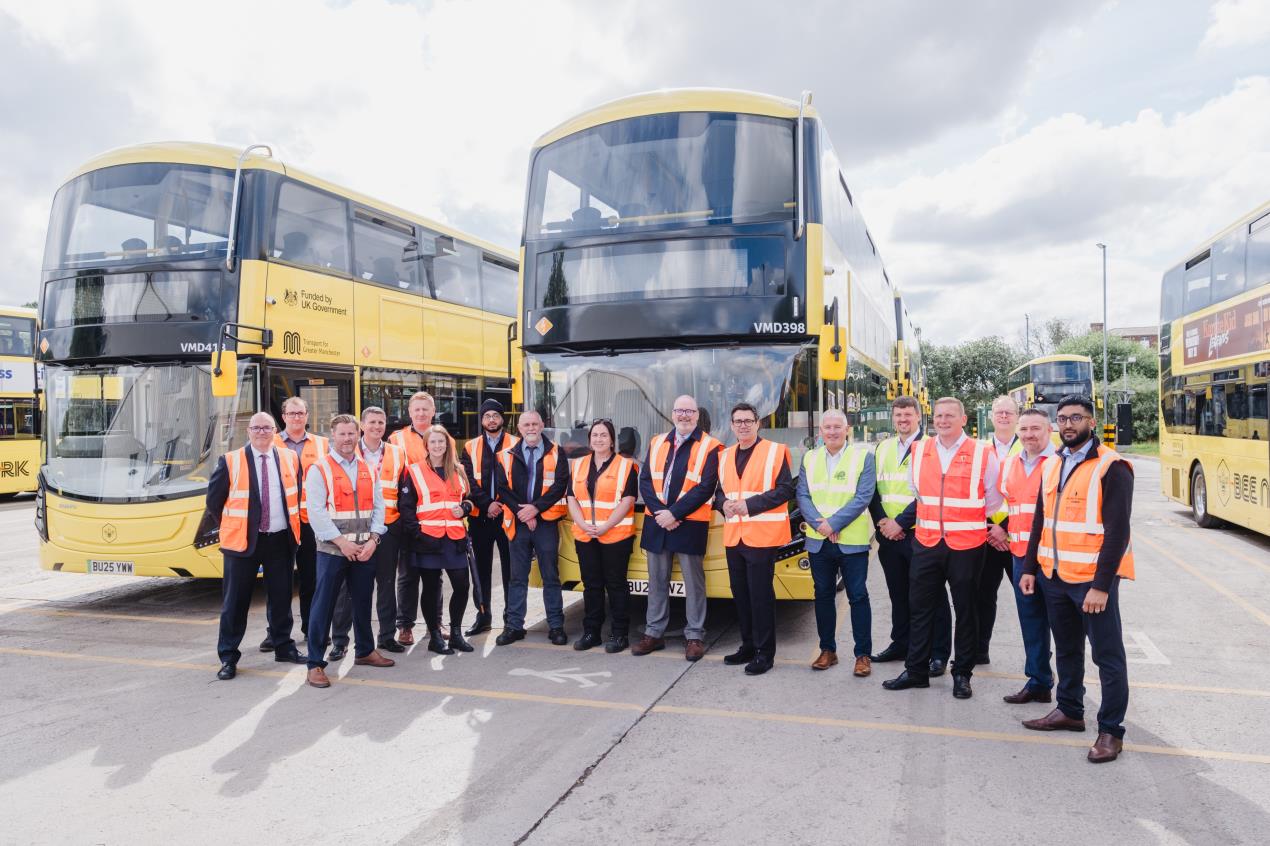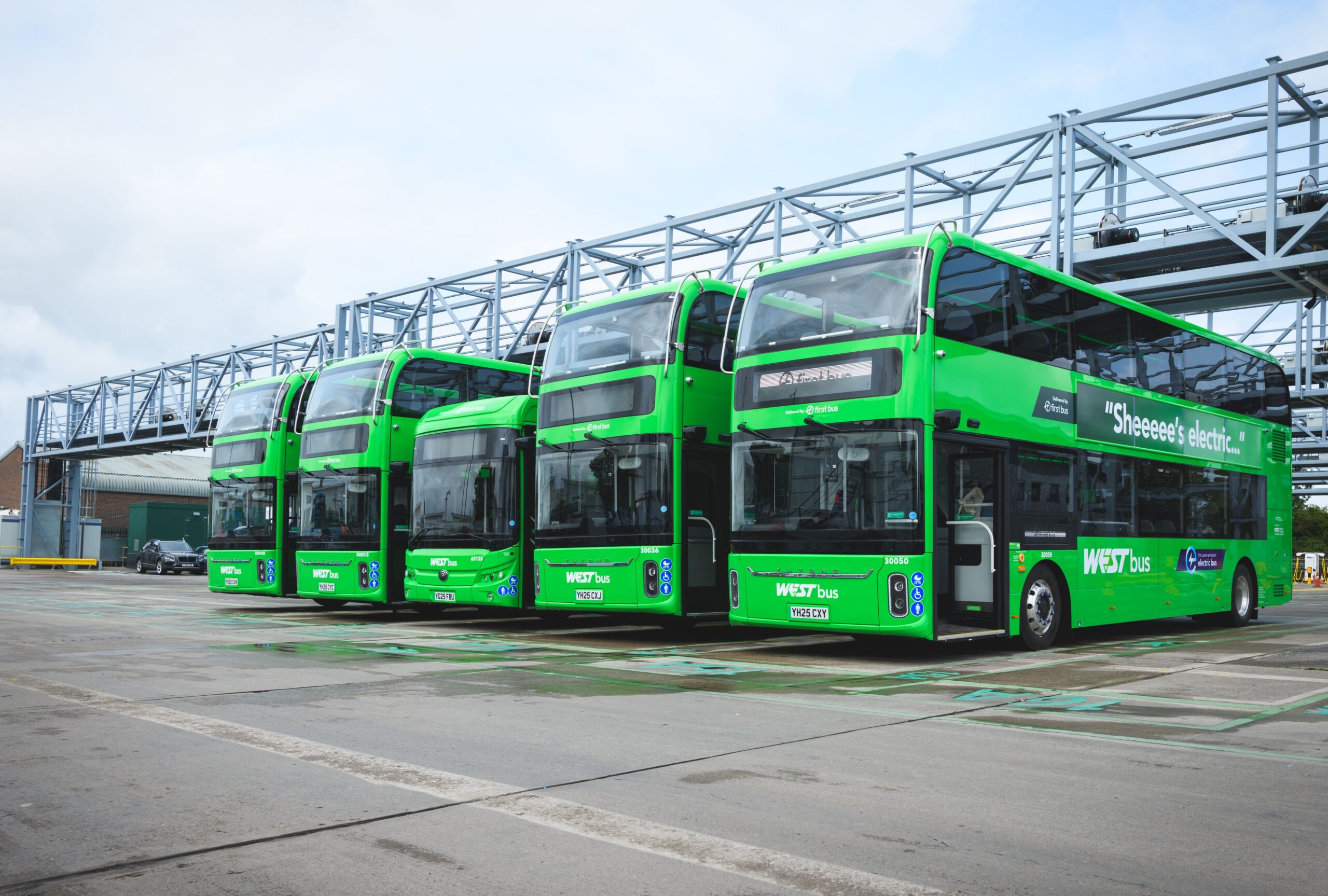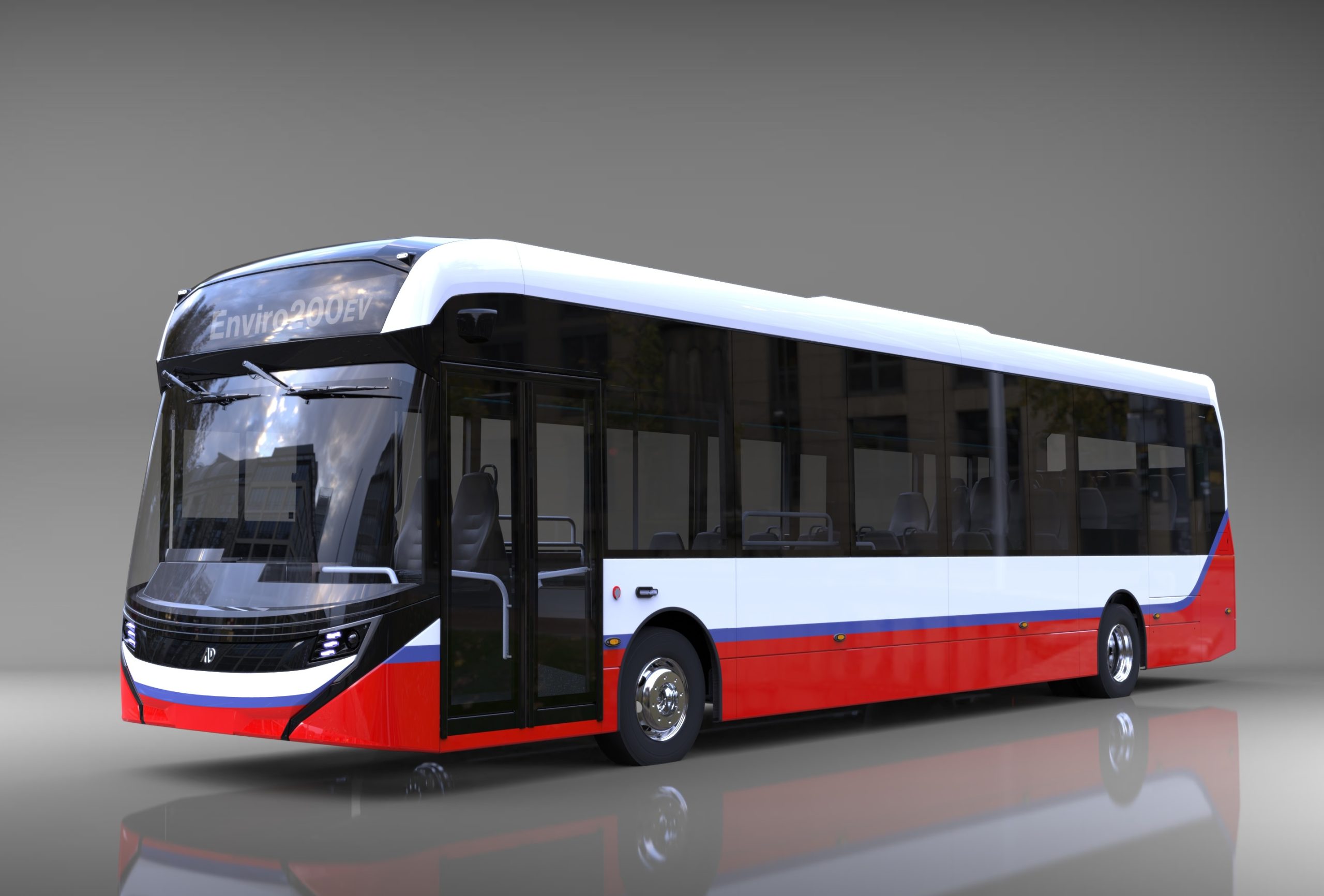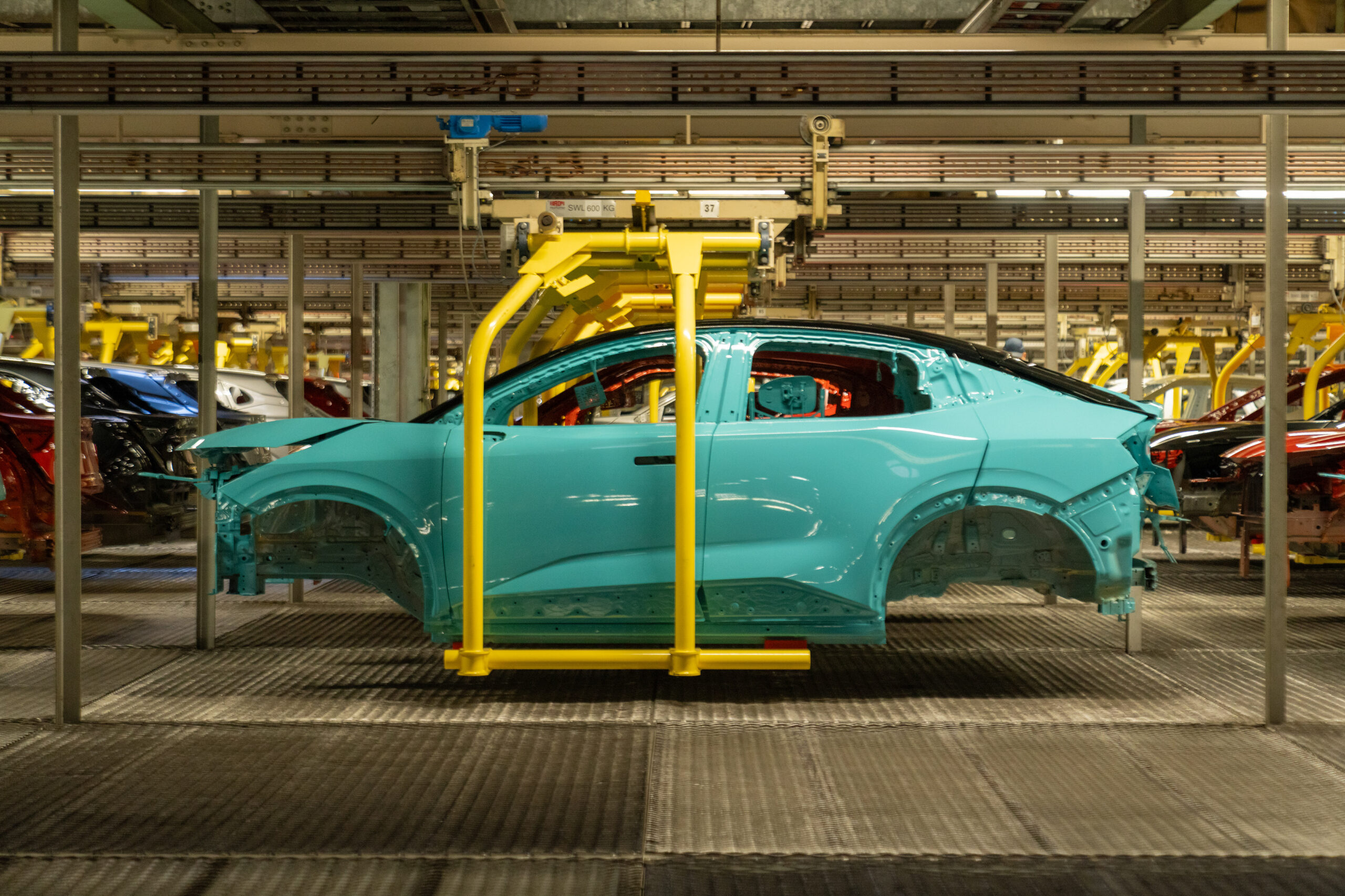
Across the UK, bus operators, helped by technology specialists, are working hard to equip depots with the necessary charging infrastructure to support the growing number of zero emission buses in fleets.
It is an important step on the journey to deliver a smarter and more sustainable transport network and build more efficient and future-ready bus operations, as the sector looks to rapidly decarbonise.
For example, Greater Manchester’s Bee Network recently completed works on its first fully electric bus depot in Ashton, Tameside.
The depot, which is operated by Metroline on behalf of Transport for Greater Manchester (TfGM), has 27 dual chargers allowing 54 electric buses to be charged at any one time.
It is now home to 83 Volvo BZL MCV Double Deck zero-tailpipe emission buses, and has helped make 14 routes fully electric.
TfGM is currently making rapid progress to electrify Greater Manchester’s bus depots, with upgrades already made at Bolton, Oldham and Hyde Road in Manchester, as the city region works towards having a fully electric network by 2030.
Further upgrades are being made at its Middleton depot this year.
Patrick Sibley, Regional CEO, Metroline, said: “Since mobilisation, completing the electrification process at Ashton has been a key priority, and we have been working closely with TfGM, our electric infrastructure partners and Volvo to ensure that we were able to get more electric buses on the road.
“We are committed to continuing to work with TfGM and their objective to achieve a fully electric Bee Network by 2030.”
Greater Manchester now has more than 300 electric buses now running across the Bee Network.

Meanwhile, Arriva Group, in partnership with fleet electrification specialist Zenobē, recently transformed its Norwood depot in South London with smart charging facilities and significant upgrades to the site’s power infrastructure.
It is now home to 30 new Enviro400EV zero-emission double-deckers from Alexander Dennis which serve customers on two Transport for London (TfL) routes including a new Superloop line which connects London’s suburbs with the capital’s centre.
This £17 million investment is part of a wider electrification programme for Arriva’s UK Bus operations in London, including Croydon, Enfield, Palmers Green, Tottenham and Thornton Heath.
Bradley Fox, Director of EV Fleet – UK & Nordics, Zenobē, said Norwood brings the total number of projects live or under construction for the company to 13.
“At Arriva’s Norwood site, we have completely redeveloped the depot, including a strategic redesign of the existing layout and installation of 15 150kW chargers”, he added.
“The infrastructure will be integrated with Zenobē smart charging software and we are looking forward to continuing our partnership with the Arriva team in Norwood by providing ongoing maintenance of the depot’s infrastructure.”
Also, the First Bus depot in Weston-super-Mare has been transformed thanks to a £14.9 million investment from the operator and the government’s Zero Emissions Bus Regional Areas (ZEBRA) project via North Somerset Council.
The depot now includes three huge gantries, installed by Magnus Construction Group, at the two-football pitch-sized site just off the A370 on the edge of the town, which will power the area’s 24 new electric buses – more than a third of First Bus’s Weston bus fleet.
As a result, the new electric buses can now transport about 20,000 passengers per week on two key services in North Somerset; the X1 between Weston and Bristol, as well as the X4 – Portishead to Bristol.
In addition, the First Bus depot in Hengrove, South Bristol has been completely upgraded due to a £37.4 million company investment and £6.6million funding from ZEBRA through the West of England Mayoral Combined Authority.
A total of five huge gantries have been installed by NG Bailey, at the site – the size of four football pitches – just off the A4174 in south Bristol, which will power the area’s 74 new electric buses, about two thirds of First Bus’ Hengrove fleet.
Rob Pymm, Commercial Director for First Bus in the West of England, said: “The opening of our first electrified depot in Bristol is not only a key moment on our journey to a fully electric fleet by 2035, but also demonstrates our commitment to providing customers with a smoother, quieter and cleaner bus network in the West of England.”

Vev, the e-fleet solutions provider has been working with independent Surrey bus operator, Falcon Coaches, to facilitate the electrification of its new bus fleet at its West Byfleet depot.
The operator is having 13 new Enviro200EV electric buses from Alexander Dennis, delivered in 2026.
Vev is designing, procuring and building the charging infrastructure at the depot which is situated in a space- and energy-constrained industrial estate bordering a railway line.
A priority was to secure the additional power capacity, and Vev facilitated a grid upgrade of 1.5 MVA to futureproof the depot’s capacity for up to 35 electric buses.
When delivered, the electric fleet will be connected to Vev-IQ, the proprietary fleet data management platform.
Once on Vev-IQ, all buses will be charged dynamically respecting any site grid limits or constraints, whilst ensuring the buses are fully charged for the next day’s duty cycle.
This electrification scheme is estimated to help reduce carbon-emissions output by 10,454 tonnes across the lifetime of the 13 fully electric, zero emission buses.
The project is being backed by a proportion of the £32 million Surrey County Council has committed to accelerate the introduction of zero emission buses in the area.
Richard Telling, Managing Director of Falcon Coaches said: “As a leading independent bus operator, we have a duty to provide our customers and local residents with an efficient, environmentally friendly service that’s fit for purpose today and in the future.
“We’re delighted to have the expertise of Vev to help us meet the challenges of switching our fleet to electric, and together we’re working to ensure our West Byfleet depot is futureproofed for up to 35 electric buses – both in terms of power-capacity and space on-site.”
By working in partnership with local stakeholders and investing in cutting-edge technology, bus operators are helping deliver a transport network that is fit for the next generation.


